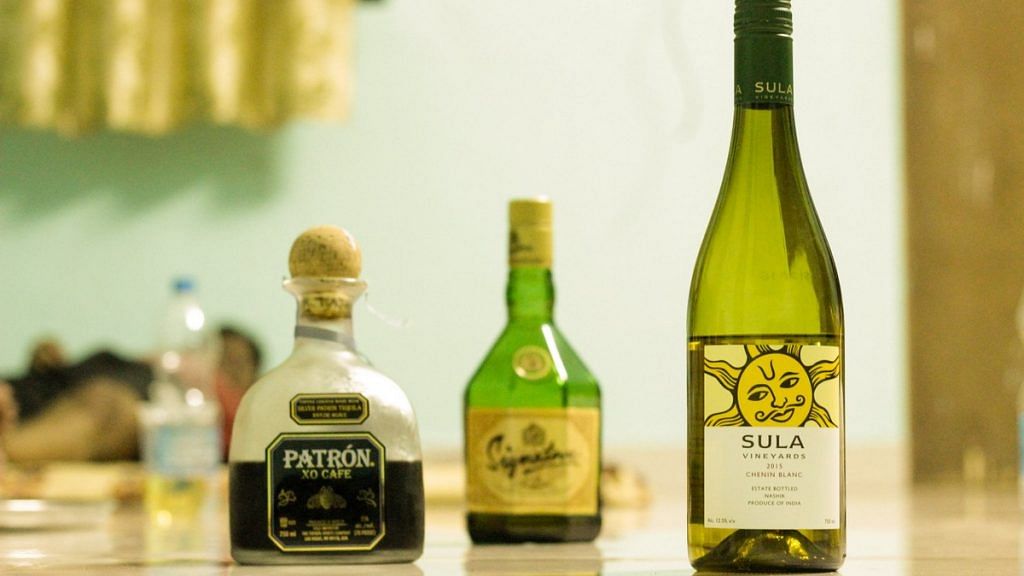New Delhi: Under mounting pressure from states, the Narendra Modi government could revisit its guidelines prohibiting the sale of alcohol during the nationwide lockdown, government sources have told ThePrint.
The sources said while Punjab is the only state that had officially written to the Centre seeking permission to sell liquor, several states such as Karnataka, Maharashtra, Haryana, Rajasthan, Kerala, Tamil Nadu, Goa and those in the Northeast have informally raised the issue several times in their various meetings with top central government bureaucrats, including the Union cabinet secretary.
“We have been given to believe that the central government could revisit the direction prohibiting the sale of alcohol,” the chief secretary of one of the states that has raised the issue with the Centre told ThePrint on the condition of anonymity.
The central government is, however, maintaining a silence on this. A senior central government official, who is part of the task force handling the Covid-19 crisis, said: “No decision has been taken on lifting the ban on sale of alcohol.”
Another top state government official, who has raised the matter in meetings with the cabinet secretary, said many states including Punjab, Karnataka and Maharashtra have raised the issues of their revenues taking a hit because of the ban on alcohol sale.
During the first phase of the lockdown between 25 March and 14 April, Assam and Meghalaya had allowed liquor sales. But they had to rescind the decision after the Centre directed them to stop allowing production and sale of alcohol.
Speaking to ThePrint in an exclusive interview, Karnataka Chief Minister B.S. Yediyurappa recently said the state has suffered a huge revenue loss since the lockdown started, which was forcing it to consider opening liquor outlets.
Also read: Lockdown’s a relief for this Rajasthan village — it has kept Gujarat’s booze tourists away
Why it’s a problem for states
Excise duty on alcohol is one of the biggest revenue earners for many states, and banning its sale at a time when most other economic activity has come to a near halt has further aggravated the financial crunch they are facing.
States have also told the Centre that the ban is becoming counterproductive, as it has resulted in illicit distilling and brewing.
“The business has gone underground, with bootleggers making money,” said a senior state government official.
The official said this not only poses a health risk for the public, but can lead to law and order problems also. “There is no quality check. If people buy spurious liquor, it will end up doing more harm than good,” the official said.
“The state government has to divert its police to check illicit distilling and bootlegging. It’s not feasible at a time when all government agencies have to work in tandem to contain the spread of the coronavirus,” the official added.
Negative impact on health and immunity
A highly placed source in the central government, however, said they took into account the negative impact alcohol consumption could have on health and immunity during the Covid-19 pandemic before issuing the guidelines.
In internal meetings, the source said, an advisory issued by the World Health Organization’s regional office for Europe was cited. The advisory states: “At times of lockdown during the Covid-19 pandemic, alcohol consumption can exacerbate health vulnerability, risk-taking behaviours, mental health issues and violence.”
The Centre was also of the view that allowing liquor sale could lead to people overcrowding at shops and flouting social distancing protocols, a necessary requirement these days to curb the spread of Covid-19.
“There was a thinking that it could lead to a law and order problem,” a senior central government official said.
Also read: Curb on liquor sale: BJP-RSS conservatism or has medical reasons?
Alcohol sale is a state subject
Senior Advocate Rakesh Dwivedi said the continued prohibition of liquor supply raises “federal concerns”.
He pointed out that Entry 8 of List II of the 7th Schedule of the Constitution makes “intoxicating liquors, that is to say, the production, manufacture, possession, transport, purchase and sale of intoxicating liquors” a state subject.
The Centre has invoked the Disaster Management Act, 2005, to direct states to prohibit sale of alcohol. But Dwivedi said the object of the Act is limited to taking necessary steps for dealing with a disaster, and cannot supersede the states on matters in the state list.
“Disaster Management Act does not supersede the state governments. It does not bring out a unitary government in the country. The state governments can be thrown out only under Article 356,” he said.
He acknowledged that Entry 29 of the concurrent list does allow the Centre and the states to deal with an epidemic, but added: “This has a limited purpose. You can do all sorts of things for managing the disaster through this power, but nothing beyond that.”
“If retail and wholesale sales of essential articles as well as non-essentials and food deliveries are allowed, can the retailers be prevented from supplying liquor?” he asked.
Also read: Don’t celebrate Bengal, news of home delivery of booze is fake. Be happy with sweets
